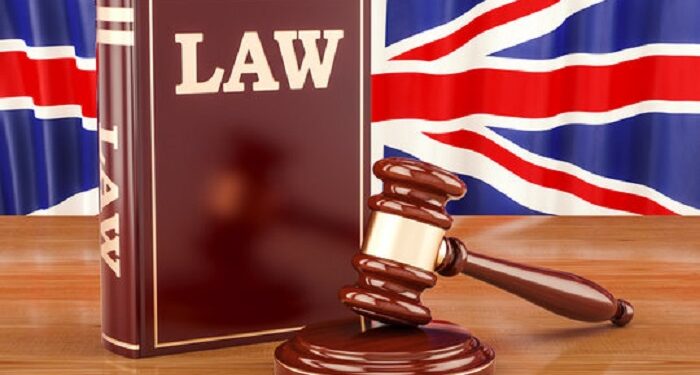Debt collection is a vital part of financial management in the UK, helping creditors recover unpaid funds in both personal and business contexts. However, laws and regulations around debt collection in the UK are designed to protect both debtors and creditors, ensuring a balanced, fair process. This guide provides an introductory overview of these laws, offering insights into how debt collection works, the rights of debtors, and the obligations of creditors and collection agencies.
1. Overview of Debt Collection in the UK
Debt collection in the UK involves the process of pursuing unpaid debts on behalf of a creditor. Creditors, debt collection agencies, and solicitors are all legally allowed to engage in this process. However, the UK’s debt collection industry is regulated primarily by the Financial Conduct Authority (FCA), which enforces strict rules to prevent unfair practices.
The regulations aim to ensure debt collection in the UK is conducted fairly and transparently. Debtors must be treated respectfully, and any process used to collect a debt must comply with the law. Failing to adhere to these guidelines can lead to penalties for collection agencies and legal repercussions for creditors.
2. Key Legislation Governing Debt Collection in the UK
Several key pieces of legislation shape debt collection practices in the UK. Some of the most important laws include:
- The Consumer Credit Act 1974: This act provides the legal framework for credit agreements in the UK and outlines the rights and obligations of creditors and debtors. It ensures creditors cannot misuse their power when collecting debts and provides protections for debtors from aggressive or unfair tactics.
- The Financial Services and Markets Act 2000: This law gives the FCA authority to regulate debt collection agencies and monitor their compliance with ethical practices. The FCA can impose penalties on agencies that violate regulations and offers guidance on maintaining fair collection practices.
- The Administration of Justice Act 1970: Section 40 of this act makes it illegal to harass debtors or coerce them into making payments through intimidation or deception. This law helps protect debtors from abusive practices.
- The Data Protection Act 2018: This law ensures that debtors’ personal information is handled correctly and that their privacy rights are respected. Debt collectors must follow strict data protection regulations when contacting debtors.
3. Rights of Debtors in Debt Collection Processes
Debtors in the UK are entitled to several protections that prevent unfair treatment. Understanding these rights is essential for anyone dealing with debt collection in the UK:
- Protection from Harassment: Debt collection agencies and creditors cannot harass debtors. Repeated or aggressive calls, misleading information, and threats are all prohibited.
- Reasonable Contact: Debtors have the right to be contacted at reasonable times. Continuous communication at inconvenient times, or through excessive phone calls, is considered harassment.
- Right to Information: Debtors have the right to receive accurate information about the debt, including the amount owed, the interest applied, and the reason for the collection.
- Data Protection: Personal information must be securely handled, and debtors should be informed about how their data will be used. Misuse of personal data can lead to legal consequences for the collection agency.
If a debtor feels they are being treated unfairly, they can file a complaint with the FCA or seek advice from consumer protection organizations, such as Citizens Advice.
4. Obligations and Responsibilities of Creditors and Collection Agencies
Debt collectors in the UK, whether directly employed by the creditor or hired as an agency, must adhere to strict ethical guidelines:
- Clear Communication: Debt collectors must communicate clearly, providing full information about the debt and the available repayment options. Misleading language or pressure tactics are prohibited.
- Respecting Debtor Privacy: Agencies are required to protect the debtor’s personal information and only use it as necessary for the collection process. They must not disclose the debt to third parties without consent.
- Offering Reasonable Repayment Plans: Where possible, debt collectors should offer flexible payment arrangements to help debtors meet their obligations without undue strain. The approach should be reasonable, taking into account the debtor’s financial situation.
- Adherence to FCA Guidelines: Licensed debt collection agencies must follow the FCA’s guidelines, which cover conduct, transparency, and debtor protection. Non-compliance can result in serious penalties, including suspension or loss of their license.
5. The Debt Collection Process
The typical debt collection process in the UK begins with initial contact, where the creditor or agency informs the debtor of the outstanding debt and requests payment. If the debtor fails to respond, the following steps may occur:
- Reminder Letters: The agency sends letters reminding the debtor of their obligation, outlining any applicable interest, and providing a deadline for payment.
- Negotiation of Repayment Plans: Often, agencies work with debtors to create manageable repayment plans, allowing them to pay in installments.
- Legal Action: If the debtor fails to respond, the creditor may pursue legal action, leading to a County Court Judgment (CCJ) against the debtor. A CCJ negatively impacts the debtor’s credit score and could result in enforcement measures, like wage garnishment or property seizure.
- Enforcement Actions: In extreme cases, if a CCJ is issued and remains unpaid, the creditor may enlist bailiffs to seize assets. However, this is usually a last resort, as creditors often prefer negotiated settlements.
6. Conclusion
Debt collection in the UK is regulated to ensure fairness and transparency for all parties involved. While creditors have the right to recover debts, they must follow legal procedures and respect debtor rights throughout the process. For debtors, understanding these rights can provide reassurance and guidance, helping them respond effectively to collection efforts.
For anyone facing debt collection in the UK, seeking legal advice or consulting with consumer protection organizations can be invaluable. By staying informed, debtors and creditors alike can navigate the debt collection landscape with confidence, knowing their actions align with the UK’s legal standards.
































